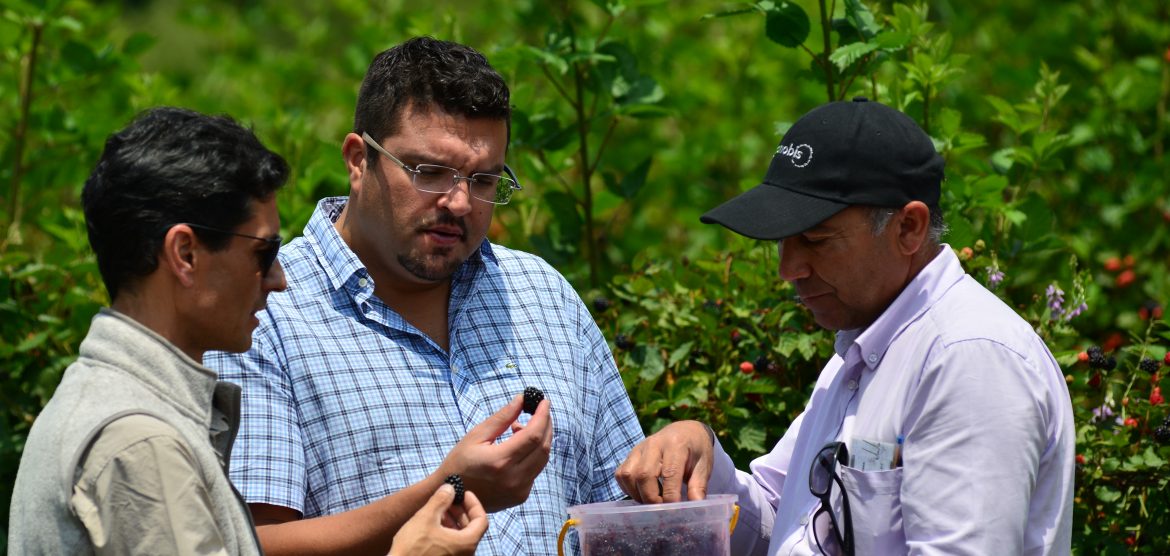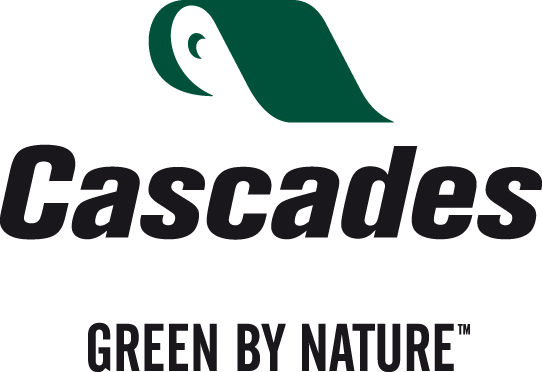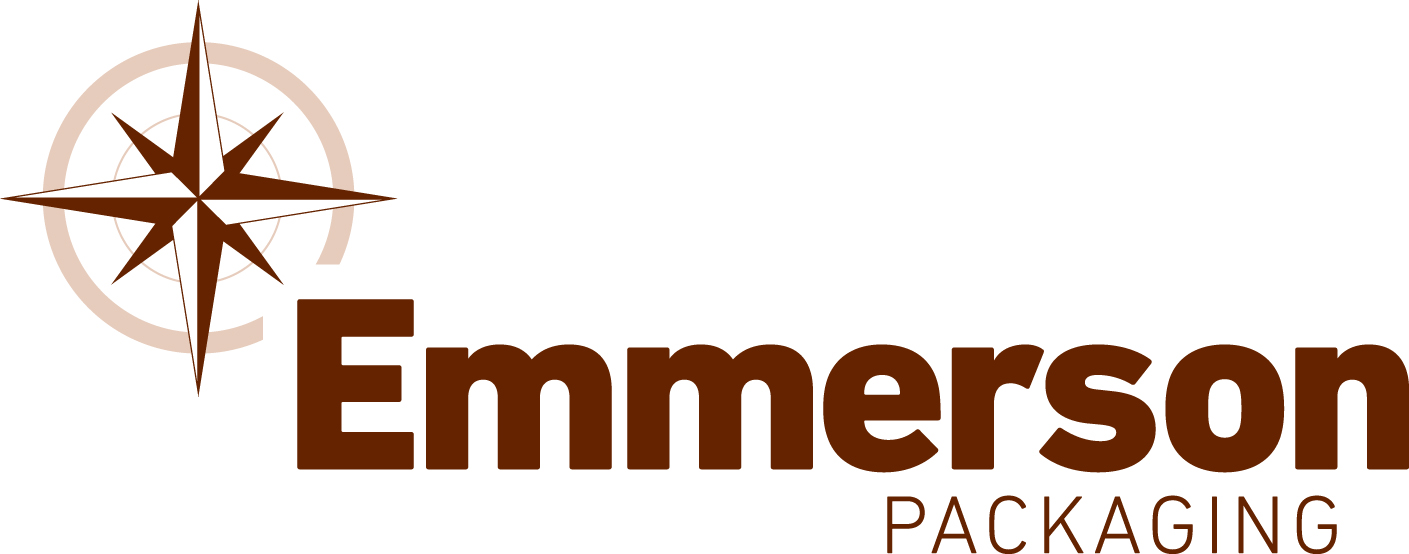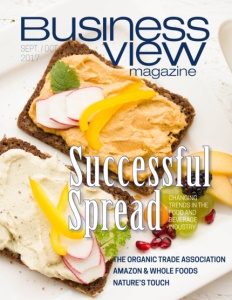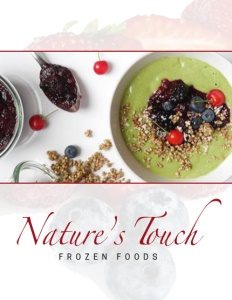Business View Magazine interviews representatives from Nature’s Touch Frozen Foods, as part of our focus on best practices, Canadian business.
Nature’s Touch Frozen Foods, Canada’s premier provider of frozen fruit products, was founded in 2004, by John Tentomas. “I started the company in the basement of my home,” he recounts, “but I was very well-versed in sourcing frozen fruit, globally, because I was working as a commodities trader and I had a boss who taught me very well how to source frozen fruit in a safe way, looking at quality and consistency. I had the pleasure of working with one of the largest yogurt company in the world and by then, also, the largest consumer of frozen fruits. They needed help from our trading company to source frozen fruit all over the world.”
“So I travelled the globe with their people to visit farms, look at processes in freezing plants, check fruit varieties and fruit specifications, and this gave me a tremendous experience in assessing quality and fruit safety,” Tentomas continues. “I wanted to take that knowledge and translate it to a consumer product. And so, I started the business with one Canadian customer, and I rented the proper room to pack the products in accordance with HACCP principles. HACCP is Hazard Analysis and Critical Control Point; it’s a food safety program. And I packed the first six pallets using a standard weight bucket and a scale and a hand sealer. It took me about a week – at night – because in the daytime I was still doing my commodities trading in order to feed my family.
“When that product was on the shelf, because the quality was phenomenal, and I had the audacity of showing frozen fruit in a clear bag, it took off. And that was really the basis of Nature’s Touch. Today, that quality premise, striving to make sure we always source the best fruit, hasn’t changed. If anything, it’s stronger than ever. As we developed our company, we developed the resources to be able to achieve that goal and perfect it. It’s a continuous process because it’s an agricultural product and therefore it is always a challenge, but, I will say, our culture is based on making sure that the consistency of our product is second to none.”
Today, Nature’s Touch processes about 120 million pounds of frozen fruit every year. “We have three plants,” says Christos Panagopoulos, the company’s Senior Vice President of Operations. “Our first plant is located in Saint-Laurent, Montreal, Quebec. We have about 130 employees in the production area and our head office is also located here in Montreal, so we are at about 180 employees at this location. The Montreal plant services customers and major retailers throughout Canada. In addition, our second plant is located in the city of Abbotsford, British Columbia, which has about another 150 employees. It has the same type of production capacity but also has the ability to freeze fresh locally sourced fruits such as blueberries. That plant services the western part of Canada, as well as customers in the Pacific Northwest of the U.S. and into the Midwest. It also services customers in Australia, Japan, Korea, and Taiwan. Our third plant is located in Virginia in the U.S. It is mainly a repack facility; it services our customers throughout the U.S., and you’re looking at about 40 employees in that location.”
In addition to the Nature’s Touch’s attention to quality and consistency, Tentomas attributes the company’s 20 to 30 percent annual growth rate to the growing acceptance by consumers of frozen fruit as a staple of their diets. “Consumers are looking at frozen fruit because of a couple of factors that are extremely important,” he proffers. “First: convenience; second: price; third: no waste.”
“Typically, frozen fruit is cheaper than fresh fruit,” Tentomas explains. “Farmers always look at the fresh fruit market first, because they tend to get higher prices for the product than frozen, because traditionally, the frozen products were put into places like jams, yogurts, ice creams, baked goods, etc. So, the quality that these areas were getting was the off-grades that were coming off of the fresh pack. So, frozen fruit did not really yield the economics of fresh. Now, there are other compensation costs for fresh because the time sensitivity is large; a lot of imported material comes in by air, especially during the cold winter months in North America. And then you have to look at the distribution channels because of the fragility of the product. They need to go out in multiple trucks; in many cases it’s less of a truckload. And, of course, the biggest factor of the cost is the waste. So the price, sold at fresh, takes into consideration the waste. That is a huge, huge, factor – 30 to 40 percent of fresh fruit is thrown away. And if you look at the percentage that is thrown away at the consumer household level, it’s a high number as well – about 30 percent. So, the real cost, apart from the retail cost, to society for fresh is much, much higher than frozen. That’s why we see a massive trend and we believe that this trend of consuming frozen fruit is very positive for the industry.
“I can also argue that, if it’s done well and sourced well, frozen fruit actually tastes better than fresh fruit because we have the advantage of picking fruit ripe off of a plant and freeze it within 12 to 24 hours, whereas the fresh market needs to pick fruit that is primarily unripe in order to survive not only the transport, but also the shelf life needed, both at the supermarket level, as well as the consumer household level. And people are eating healthier and therefore eating more fruits and vegetables, which is great. As far as we’re concerned, they should be eating more. So if we can help by making it more affordable, which is a big issue for many families, then we will try to achieve that goal of making it more accessible, competing on the quality attributes of fresh, and in many cases, beating the quality attributes of fresh. This is the goal of our company.”
Tentomas elaborates on what he believes are Nature’s Touch’s advantages in the industry and why it currently maintains a 70 to 75 percent market share in Canada in consumer retail frozen fruit. “I think one of our biggest attributes is the fact that we actually go to the farm level and the processing level, and we understand where everything comes from very, very well. We have direct relationships with our suppliers, whereas many other competitors heavily depend upon the traders, like what I used to do, to source their product for them, which makes them, in my opinion, one step behind in their understanding of the attributes of the fruit. And if you have that one step removal, are you really looking at the safety profile of the product the way you should be, if you don’t see, feel, and touch where you’re getting it from? So, that’s always a concern. I’m not saying that they’re not doing that, but we feel it’s an important factor to have direct contact.
“Then there are the quality attributes. Many competitors service both food service, industrial, and retail, and the quality and service attributes are very different among these channels. We don’t service food service, we don’t service industry; we strictly service consumer retail, and therefore, our entire culture for the company is based on servicing that customer. So, those are some of the major differentiating points from our competition.”
Although Tentomas considers Nature’s Touch principally a fruit company, supplying mainly cherries, blueberries, strawberries, raspberries, and mangoes, frozen vegetables are also included in its portfolio: broccoli, corn, green beans, kale, peas, and spinach. “We do some vegetables,” he says. “And if you look at the way we source fruit, I’m always on the pursuit to find that special fruit that makes it different and better. There are cases where we found vegetables that way and we’ve decided to market those items. Anything that’s hard to source – we like that because we can add value. Again, our international presence, our boots on the ground, looking at areas of quality in the food sector, we have found that, on the organic vegetable side, if we can safely and securely source product like that, then we will do it and we’ve added it to our brand. We’ve found some phenomenal vegetables like broccoli from Ecuador that is impressive. It has the rigidity and structure of a fresh broccoli – it’s not mushy frozen broccoli, even after you put it in the microwave, it tastes like you steamed fresh broccoli. So when I see the ability to source vegetables that are truly different than what’s in the marketplace, then, by all means, we will promote those. We are not a vegetable company, though; we are primarily a fruit company that works with some vegetables that we feel are different in the marketplace.”
Going forward, Tentomas says that expanding the company’s geographic reach in the United States is next on the agenda. “We feel the American customer needs to know more about frozen fruit and how it can be used,” he relates. “As a matter of fact, I’ll be moving to the U.S. to spearhead that effort. It’s a huge opportunity.”
Another growing item of concern to Tentomas is food safety. “There’s been a major shift change in both regulatory as well as consumer behavior in how we eat these products,” he states. “Consumers today are eating raw and frozen fruits and vegetables, putting them in their smoothies and putting them in their salads, and there have been some major recalls in 2016 for both frozen fruits and a massive one in frozen vegetables. So, the food safety landscape has changed significantly. And what you’re seeing is the industry looking at their product as truly ‘ready-to-eat.’ Therefore, we need to establish the food safety parameters that come with a ready-to-eat product. And we see more significant change coming in enforcing the guidelines. That’s going to be one major change that will be positive for consumers because it will result in dramatic decreases in potential contamination of frozen fruits and vegetables. As an industry, we have a tremendous responsibility in making sure that we improve the food safety profile as consumers are eating more and more of it.”
As Canada’s pre-eminent supplier of frozen fruit, Tentomas sums up the ethos at Nature’s Touch: “There’s a passion here and a culture here that’s concerned with how a consumer uses our products; making sure it’s safe, and promoting good eating through eating natural foods. That value system translates across the organization and if we can look at that as a legacy of our company, I would be extremely proud that our humble beginnings had an impact on people’s lives.”
“It’s important for customers to know that we go above and beyond,” adds Panagopoulos. “We want to make sure that the best product is available to the consumer. And we take pride in that.”
AT A GLANCE
WHO: Nature’s Touch Frozen Foods
WHAT: Premier distributor of frozen fruits and vegetables
WHERE: Saint-Laurent, Quebec, Canada
WEBSITE: www.naturestouchfrozenfoods.com
PREFERRED VENDORS

Cloverdale Cold Storage Ltd. – Cloverdale Cold Storage Ltd. is British Columbia’s fastest growing public cold storage company, with three cold storage facilities with the capacity to store more than 40,000 pallet positions of frozen food. Cloverdale Cold Storage Ltd. offers the coldest temperatures in the industry: -28° Celsius storage temperatures. So whether it’s seafood, meat, poultry, frozen fruits and vegetables, or retail packaged foods, the company can provide a frozen handling and storage solution. – www.cloverdalecold.ca

Equipement de Sécurité Universel – Equipement de Sécurité Universel Inc. has been a leader in custom-made uniforms, personal protection products, and related product for over 20 years. Built on fast, personalized service, the company caters to all types of users: governmental, institutional, public, private, and the individual worker. – www.unisafety.com

Flexipak Industries Inc. – Headquartered in Montreal, Quebec, Flexipak Industries Inc. is a second-generation, family-owned company that operates a 40,000-square-foot manufacturing facility. It is a full-service, vertically-integrated, industry-leading flexible packaging firm that delivers high-quality, state-of-the-art, flexible packaging solutions for a variety of industries and organizations across North America. – www.flexipak.com

Kruger Inc. – Kruger Inc. is a Canadian corporation that manufactures publication papers, tissue, lumber and other wood products, and corrugated cartons from recycled fibers. Kruger Inc. has also become a major provider of renewable energy, wines and spirits, recycling services, and biomaterials. – www.kruger.com
Ameri-Can Logistics Ltd. – www.ameri-canlogistics.com
